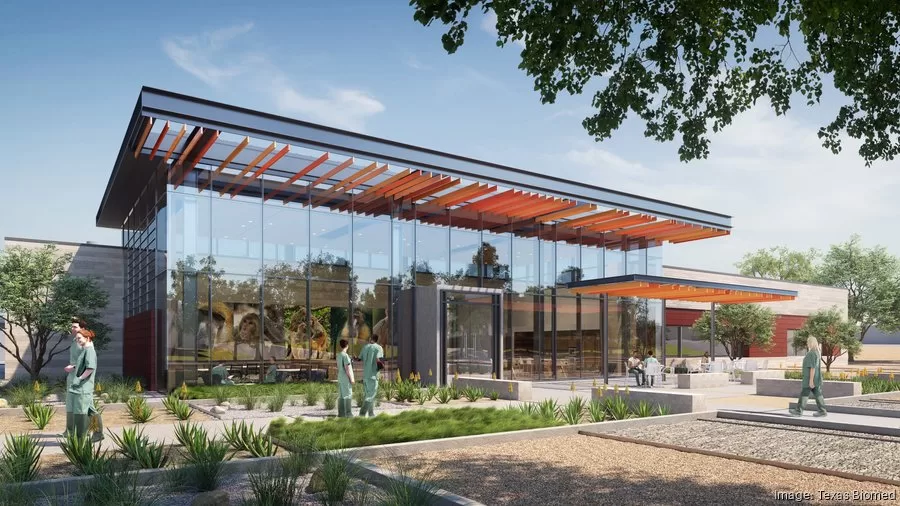Texas Biomedical Research Institute(Texas Biomed) is embarking on a transformative $210 million expansion of its West San Antonio campus, a move that could bolster its status as a global leader in infectious disease research while tapping into the lucrative $16 billion biodefense market.
This will dramatically develop the 200-acre campus, with an expanded structural footprint and increased scientific capabilities. Already, Texas Biomed is seeing an uptick in recruitment of top-tier scientific talent, part of the growth strategy. According to Texas Biomed Chair Craig Boyan, leadership is making major investments to strengthen global health initiatives and solidify San Antonio’s position as a key bioscience and research hub.
The largest part of the Texas Biomed expansion includes a new 30,000-square-foot high-containment facility, which is complete with about 4,000 square feet of BSL-4 laboratory space. Currently, Texas Biomed has the only private maximum containment lab in the United States, but the current 1,200-square-foot facility – built in 2000 – is no longer able to handle demand.
“This new space will allow us to attract leading scientists from across the globe who are eager to work in a collaborative environment,” said Matt Majors, vice president of operations for Texas Biomed. The BSL-4 facility itself is estimated to cost about $75 million.
The rest of the infrastructure improvements include an 18,000-square-foot Animal Health Center, expected to go online in June 2026, thanks to a US$20 million investment. Other new facilities, part of the overall infrastructure upgrade, include shipping, receiving and maintenance facilities.
Several projects already completed
While some aspects of the expansion have been finished, such as the initial part of a state-of-the-art animal care complex and various infrastructure enhancements, most of the development is yet to come. About $160 million in new projects are set to be completed by 2028.
“This has been a long, multi-year process, but the biggest phase is still to come,” Majors said.
In addition to these expansions, Texas Biomed intends to construct a Global Center for Bioscience, which will be an entry point to the campus. Currently in the design phase, this facility could be constructed for more than $120 million, thereby underlining the institute’s commitment to science over the long term.
Dr. Larry Schlesinger, President and CEO of Texas Biomed, underscored the reason for continued investment in modernization. He said, “It’s essential that we pursue every avenue to diversify our resources and upgrade our facilities. The need is tremendous.”.
But fulfilling that vision will require more money. Schlesinger emphasized that public and private support is vital to Texas Biomed’s success. “Engaging the community is absolutely crucial to making this expansion a success,” he said.
As Texas Biomed embarks on these ambitious plans, the institute is positioning itself for a future of groundbreaking scientific research and global impact in the fight against infectious diseases.
Read also: BioMed Realty Celebrates 585 Kendall Steel Topping-Off
Texas Biomed Expansion Project Factsheet
Project Overview
A $210 million campus expansion initiative to enhance infectious disease research capabilities and tap into the biodefense market.
Location
West San Antonio campus (200 acres)
Key Components
New High-Containment Facility
Size: 30,000 sq ft total
BSL-4 lab space: 4,000 sq ft
Estimated cost: $75 million
Replaces current 1,200 sq ft facility built in 2000
Animal Health Center
Size: 18,000 sq ft
Cost: $20 million
Expected completion: June 2026
Texas Biomed Expansion Plans: Additional Infrastructure
Shipping and receiving facilities
Maintenance facilities
Advanced animal care complex (Phase 1 completed)
Future Development
Planned Global Center for Bioscience
Estimated cost: $120+ million
Will serve as campus gateway
Texas Biomed Expansion Timeline
Several projects already completed
$160 million in new projects to be completed by 2028
Market Opportunity
Targeting $16 billion biodefense market
Currently operates only private maximum containment lab in US
Read also: Michigan State University approved US$335 million biomedical research facility project

Leave a Reply